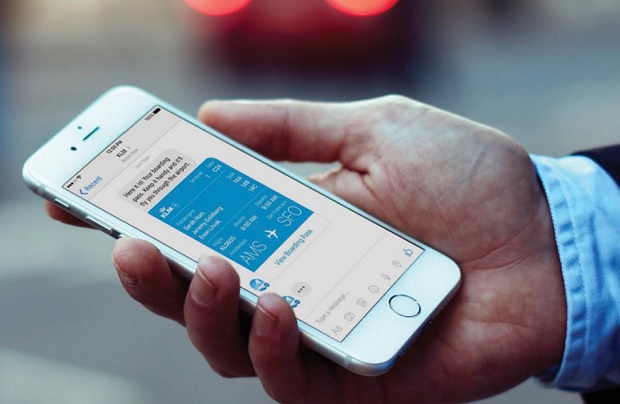KLM wanted to create a smarter customer service experience via WeChat to engage with customers in China. This case study looks at how the Dutch airline giant worked with Nexmo to create a more efficient customer service platform for the modern consumer.

Case study summary
• Airline integrated chat apps into existing customer service workflows in Salesforce
• KLM also offered flight information on Facebook Messenger
• Synced data helped agents to understand the context of every conversation, boosting customer service
The challenge
KLM Royal Dutch Airlines is leading the social revolution. With 200 social media support agents and over 100,000 mentions every week, social is a critical service and engagement channel for the company. As a global airline, KLM’s customers’ social behaviour differs across geographies. In Asia, KLM’s customers are demanding engagement over more personal chat app networks like WeChat, KakaoTalk, and Messenger.
In September 2014, KLM started servicing customers in China over WeChat.
While it allowed KLM to better engage customers, it was a separate support channel, which created inefficiencies. KLM needed a solution to easily integrate chat app communications with their Salesforce Service Cloud to:
• Decrease customer response times
• Streamline and simplify agent training
• Track the context of multi-channel customer conversations within Salesforce
• Provide customer support across other popular chat apps without any additional integration
• Improve reporting and BI to optimize operations
The solution
Nexmo Chat App API enabled KLM to communicate with its customers on WeChat, and seamlessly integrate their chat app communication into their existing customer service workflows in Salesforce Support Cloud.
The integration between KLM, Nexmo, and Salesforce marks the first time a brand has managed global WeChat customer communications in Salesforce via an API.
While the immediate benefit was to integrate WeChat, Nexmo Chat App API was compelling for KLM because it offered integration to multiple chat apps with a single, agile API.
KLM also offered its customers relevant flight information on Facebook Messenger, including booking confirmation, check-in notification, boarding pass and flight status updates. Since KLM already integrated with Nexmo Chat App API, the company easily added Facebook Messenger to its Salesforce Support Cloud dashboard. This allowed KLM service agents to quickly respond to support inquiries.
The results
KLM has seen impressive success using Nexmo’s Chat App API, and continues to be a leading social customer service innovator:
• Increased operational efficiency – a single system for customer support agents resulted in an improved agent experience, consistent training, and allowed for consistent reporting
• Seamless social messaging communications – by integrating multiple chat app communications into existing enterprise service workflows, KLM saw increased agent efficiency and decreased response time
• Increased brand engagement – positive, active user feedback on WeChat and Facebook Messenger created customer stickiness and increased brand engagement
• Contextualized customer communications – with Salesforce connected to all other systems within KLM, this made it possible for agents to understand the context of every conversation, thus improving the overall customer experience
• Synchronized data intelligence – a centralized social care dashboard allowed KLM to better monitor and learn from their engagement and response data
Martine van der Lee, Manager Social Development & Technology at KLM Royal Dutch Airlines, said: “At KLM we believe we should be where our customers are. This means we want to offer our customers meaningful interactions on the platforms they already use and love, such as WeChat and Messenger. It is crucial we are able to integrate these conversation with our CRM platform: Salesforce. Nexmo offers exactly that, and has innovated their solutions together with KLM while launching KLM on Messenger. This allows us to continue to be front-runner on social media and social care.”